Young students on break from classes are able to turn their learning from the textbook to the trenches of the ocean, all under the informative and watchful eyes of a local institution.
During winter, spring and summer class reprieves, children from ages 5 to 13 have many extracurriculars to choose from, one being science camps hosted by Heal the Bay Aquarium under the Santa Monica Pier. The nonprofit, dedicated to making coastal waters and watersheds throughout Santa Monica and Greater Los Angeles safe, has a strong education arm led by Education Manager Robert Ramos. Ramos noted that the winter 2023 "extreme" themed science camp had the highest attendance of any camp since before the COVID-19 pandemic.
In his over five years of service with Heal the Bay, Ramos said times like the pandemic were "challenging" but that he feels very rewarded talking to students and reminding himself about the "things that matter."
"I try to speak to them in a way that inspires them, that makes them want to care about the environment," Ramos said. "Maybe you [also] learn something, but really it’s about caring about the place we exist in and inspire them to want to take care of it."
That engagement is cultivated during the camps, which include activities, experiments and camps for everyone in the 5-13 age range. For the winter camp, Ramos took inspiration from events like the X Games, creating a "rad" vibe focusing on defining and describing animal adaptations, and how these adaptations help with survivability.
The structure of the camps is meant to "build upon itself," with the first of the four camp days acting as "Tactical Tuesday" where Ramos defined the camp’s theme along with providing examples of defensive adaptations for sea creatures like shells, spikes and venom. The next day was "Wacky Wednesday," lessons based on how adaptations can both be physical and behavioral, focused on sea creature camouflage tactics.
Before finishing with "Flashback Friday," talking about the evolutionary process and why some animal adaptations are no longer beneficial, Ramos led the group in "Thoughtful Thursday," honing in on adapted animal intelligence. The Thursday session included a "Whale Song" game to explain how whales can speak to one another.
"Intelligence is really hard to quantify, [it’s] more of a higher level concept to pitch to kids," Ramos said. "It can aid in our survivability because we can talk, we can communicate, we can coordinate."
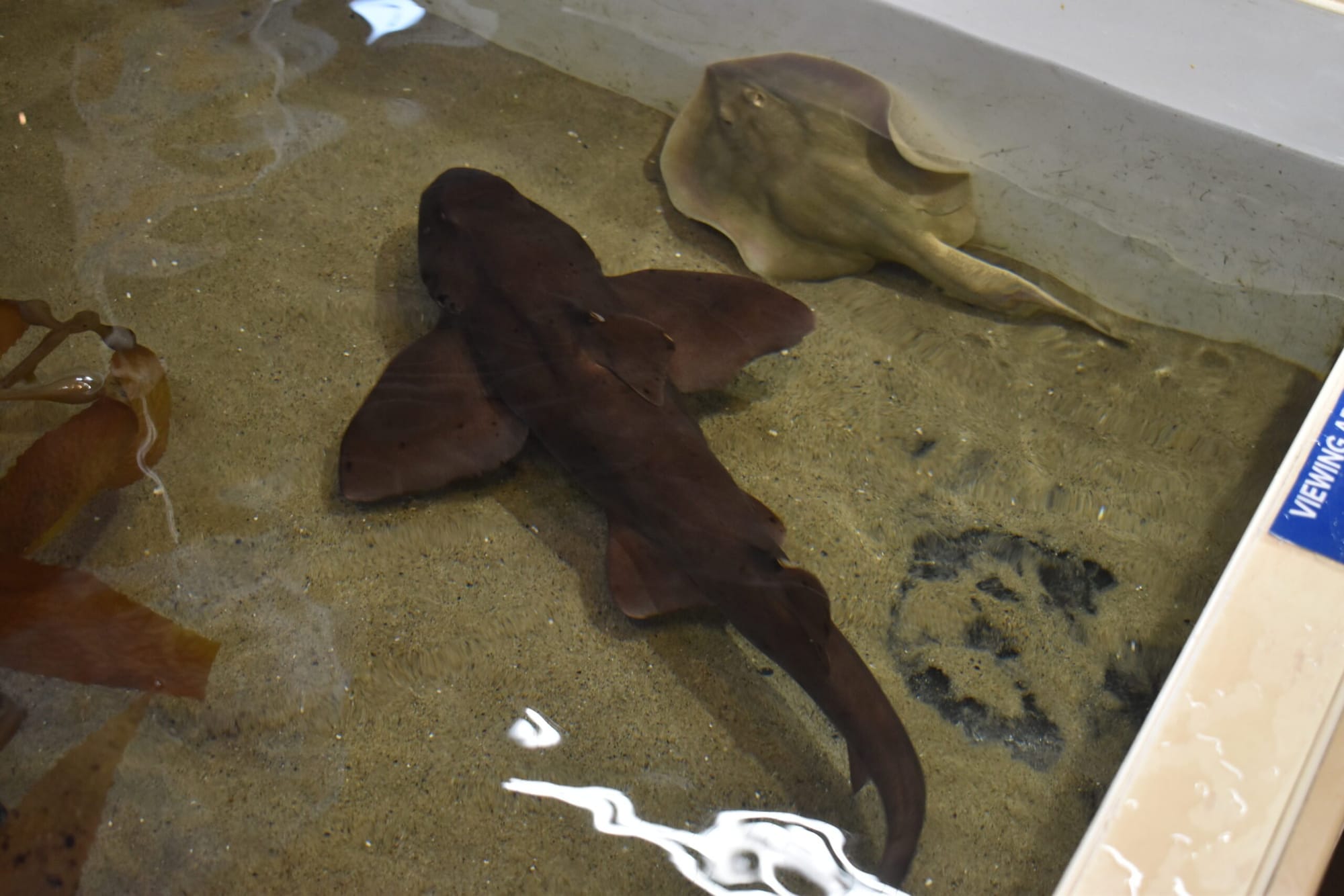
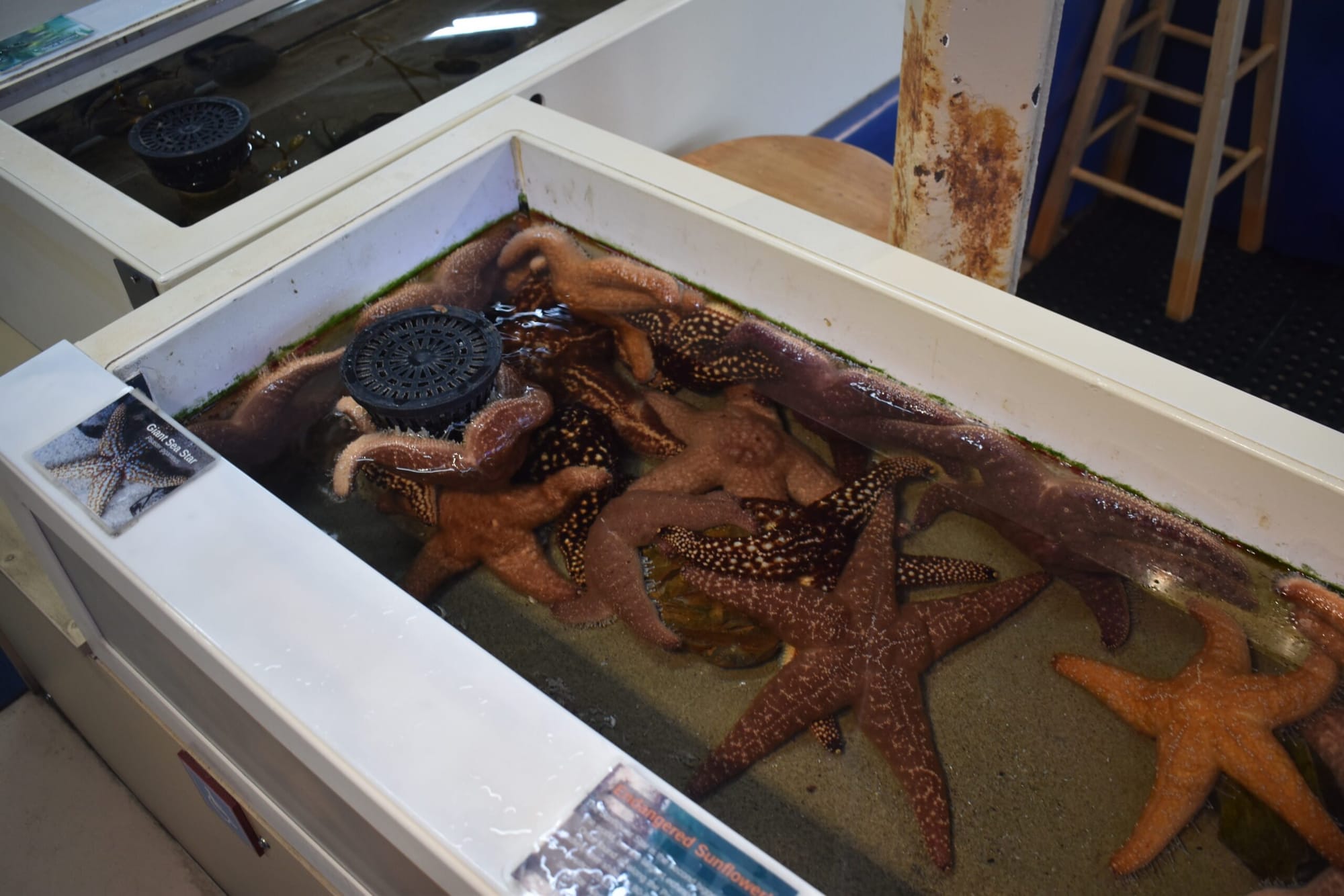
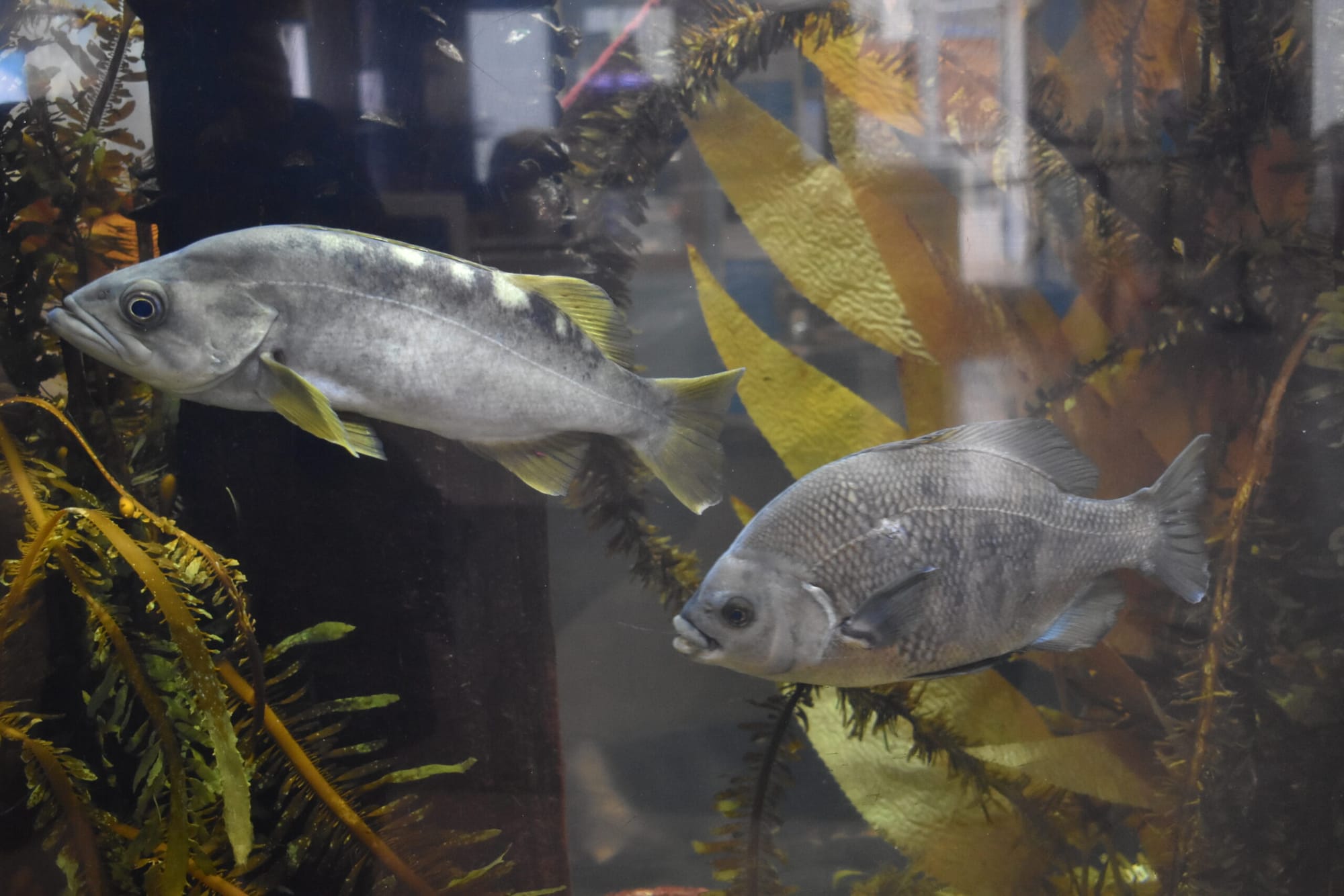
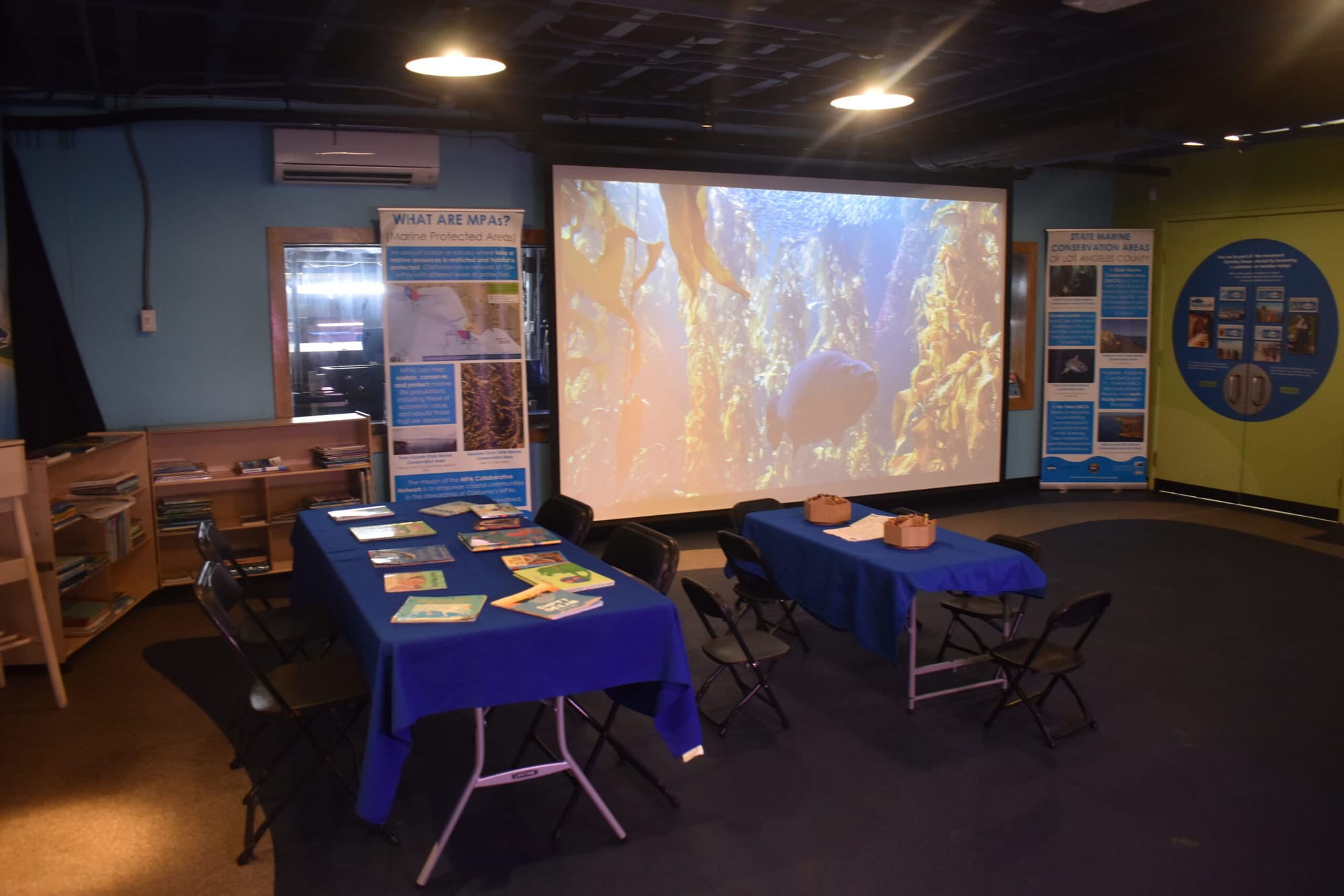
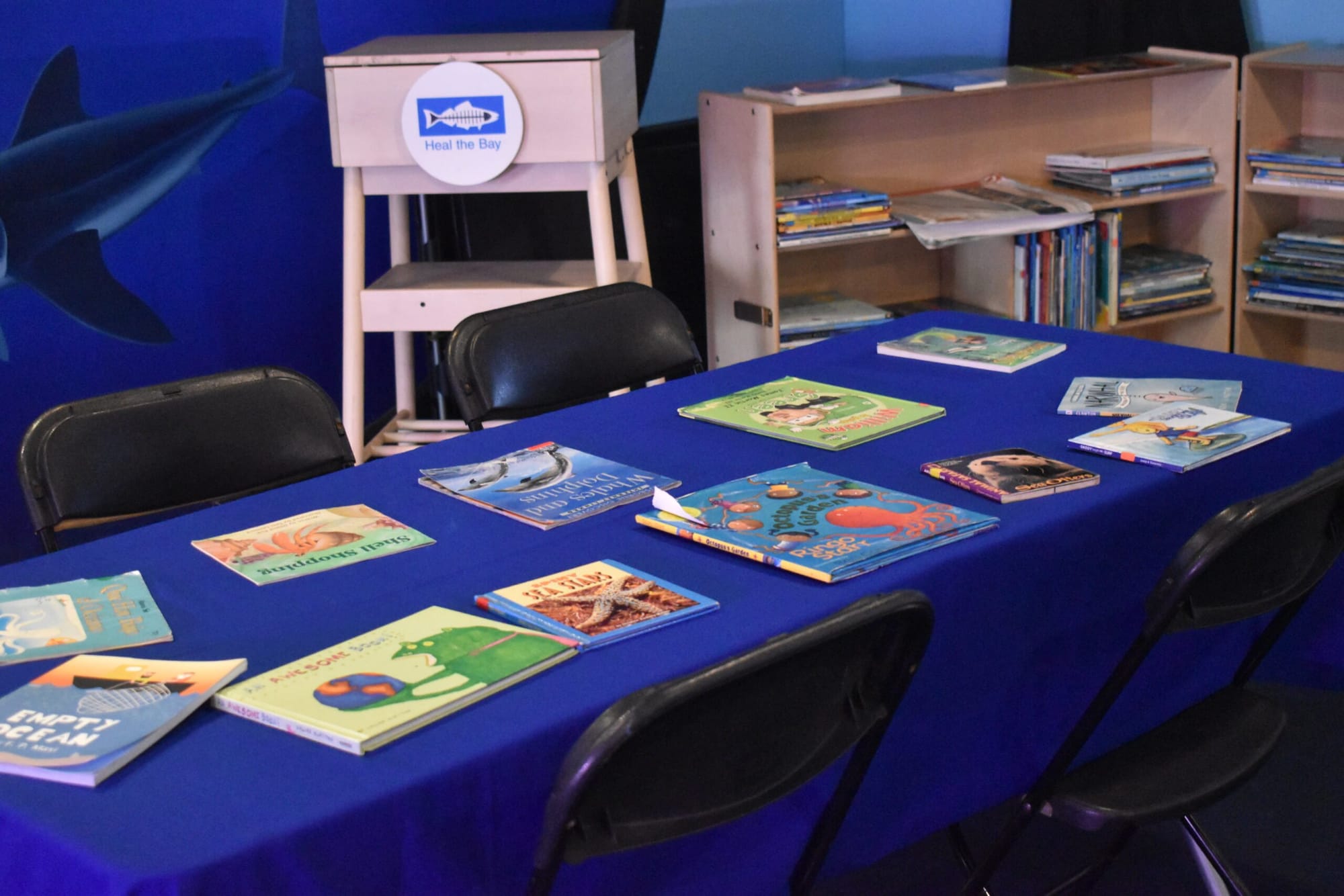
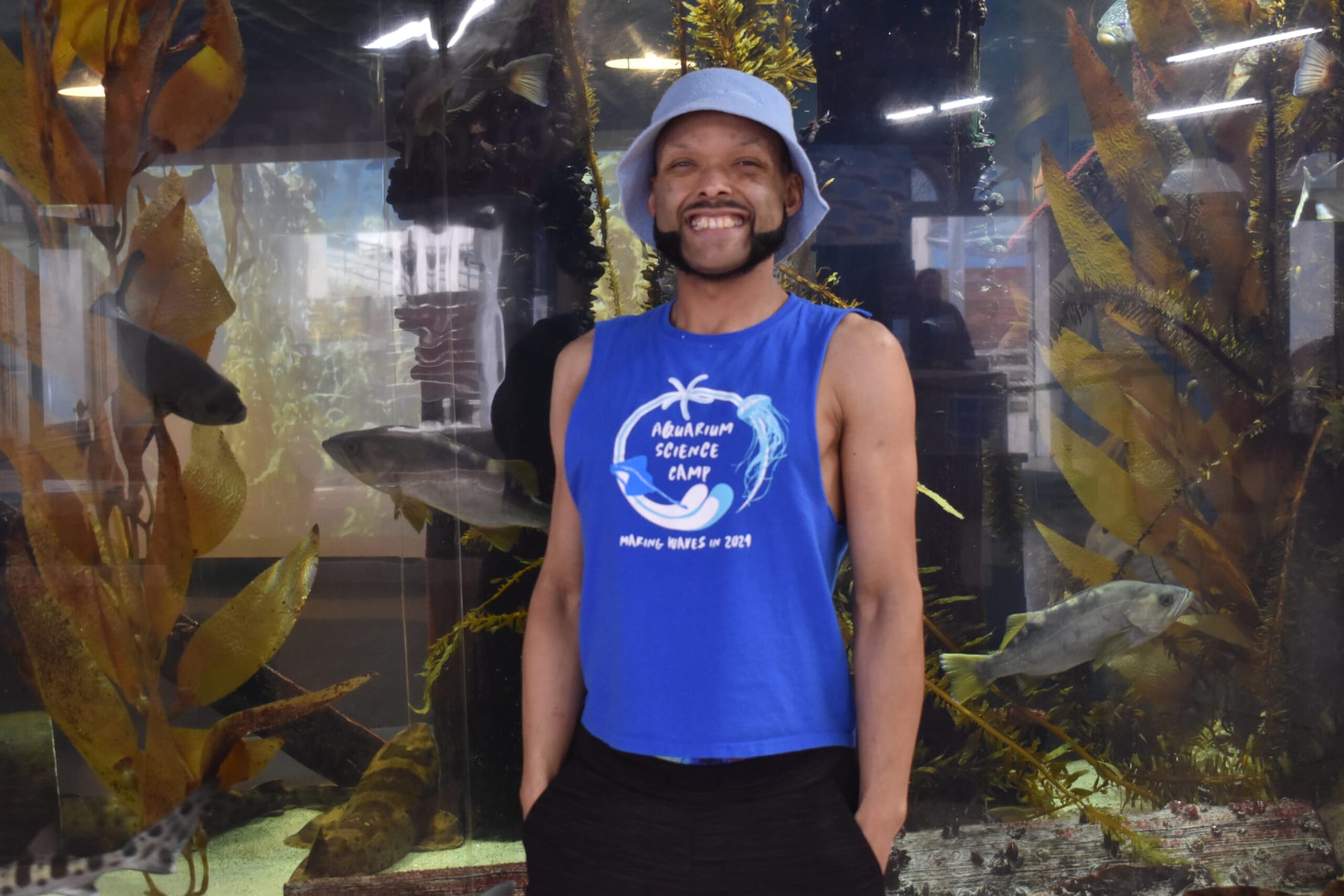
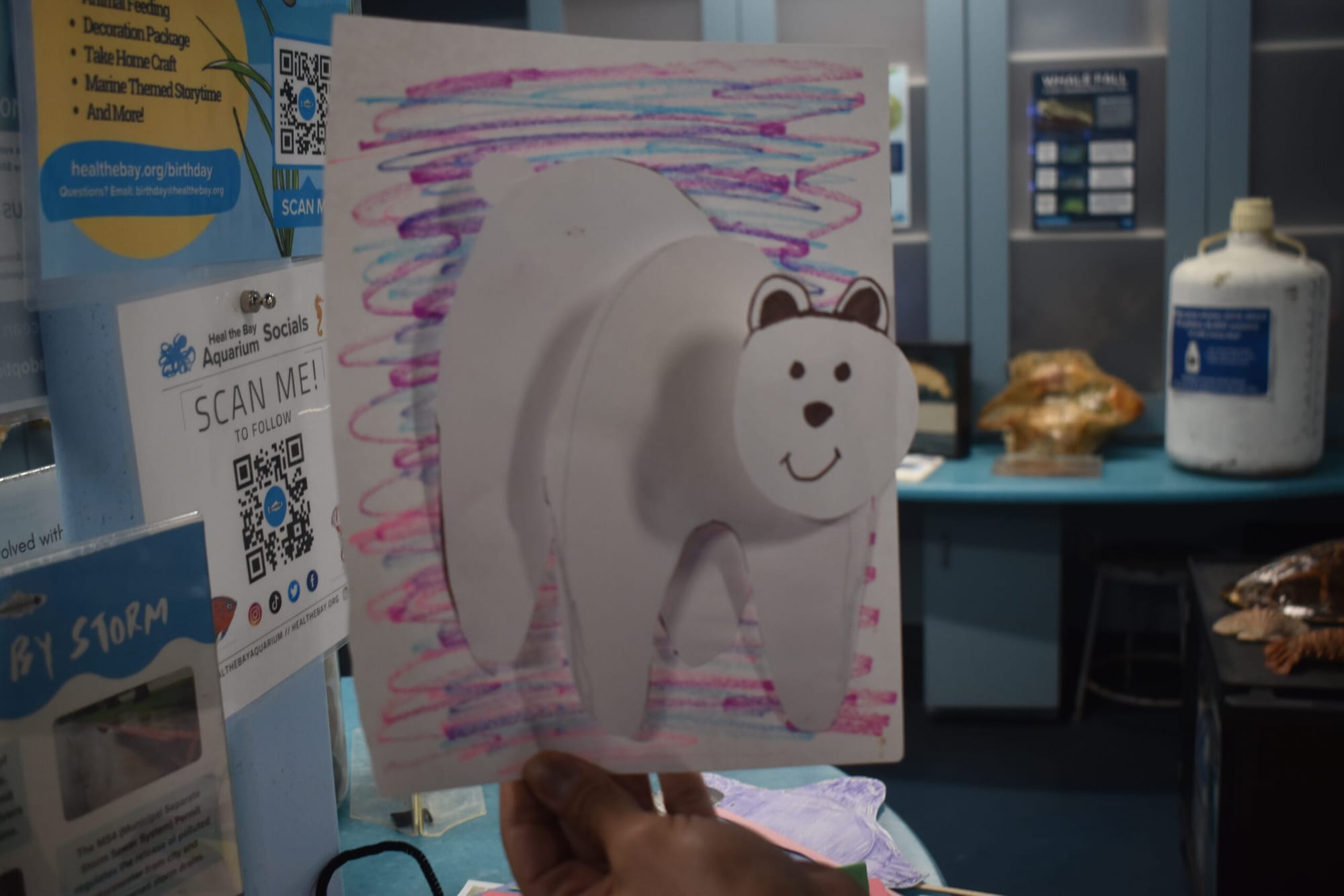
Along with crafts and games, youth are able to interact with the vast animal gallery, touching various species and having a chance to visualize what they’re learning about.
"Having this physical interaction with animals really helps you empathize … it inspires emotions within [kids] … I can be there to help guide those questions and those observations," Ramos added.
Other important aspects of the camps include the chance to traverse Santa Monica beaches, spending time practicing mindfulness while being alive within the city’s ecosystem. Students are also given nature journals to reflect on what they’ve seen during camp, giving the young climate stewards a "variety of ways" to conceptualize more complicated topics.
A truncated version of a camp visit is also done via school class field trips to the aquarium, a two-hour session which begins with gallery exploration before splitting the class group into two sections. One group takes to the beach for exploration, while the other visits the "Green Room" class setting to learn about a topic chosen by a teacher, ranging from food webs and habitats to coastal cleanup education and human impacts on ecosystems. After around 40 minutes, the groups switch stations, providing a comprehensive experience under the "Five E" model of learning (engage, explore, explain, elaborate, evaluate).
In March, Heal the Bay’s camp returns for a spring session under the theme of "Marine Myths and Legends," which is something that has always engaged Ramos. The education manager plans to walk students through topics like weather and climate myths, a chance to battle misinformation and what he calls a "repeating of facts" style of education.
"A lot of what learning has been up until now, especially in science themes, has been about recall, memorization, spit it back out … and that’s not how it works … without that deeper level of thinking and engagement, they’re not really learning anything," Ramos said. "The learning they’re doing is more superficial, it’s not deep. Understanding the why behind something can help you form new, informed opinions when you are given additional information."
Sign-up links for the March "Marine Myths and Legends" camp will appear on the Heal the Bay website soon, and is also where visitors can learn more about the nonprofit.

